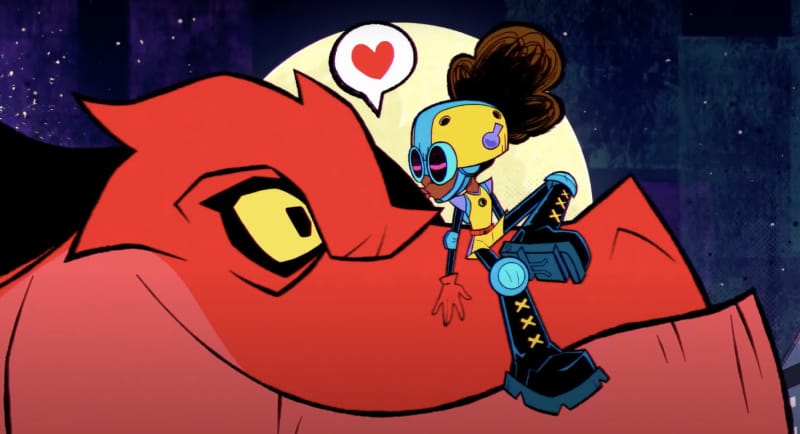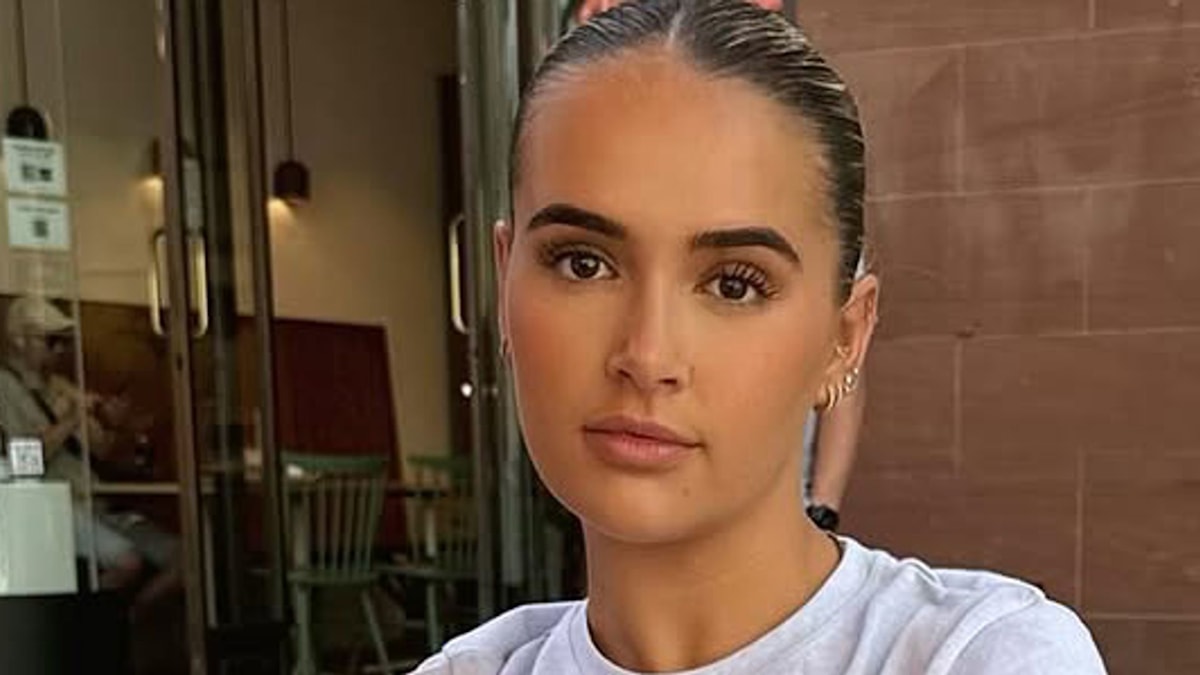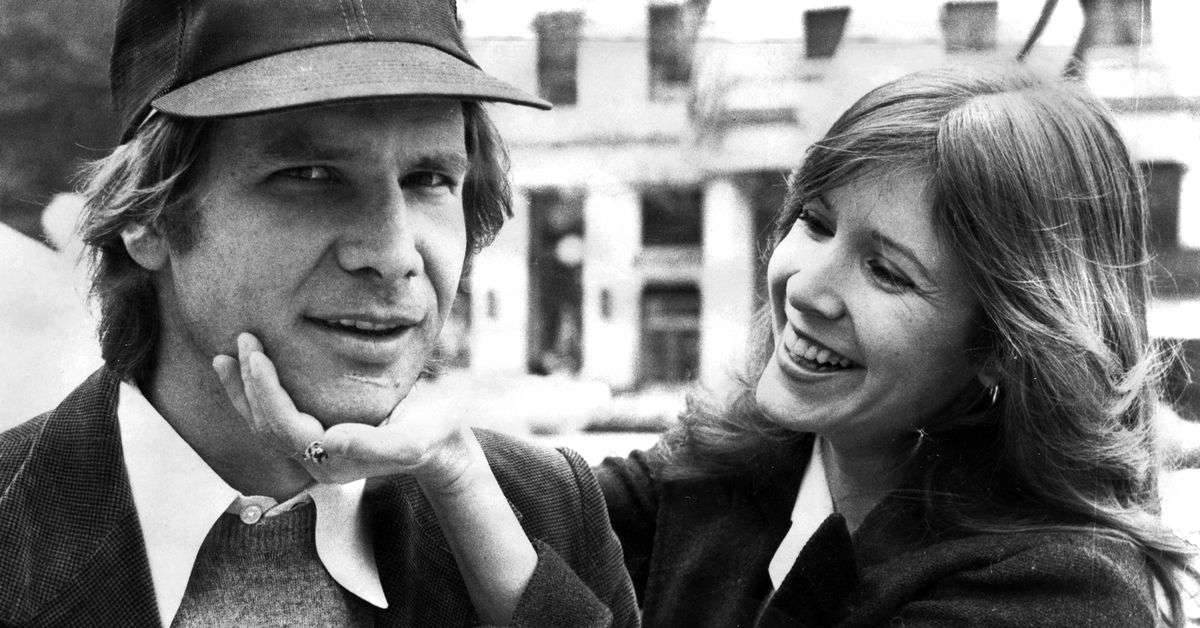Winnetka Bowling League appear on the cover of the Summer 2024 Issue — head to the AP Shop to grab a copy.
Matthew Koma’s never been one to take himself too seriously. A quick scroll on his Instagram account will produce sarcastic captions and zany memes in lieu of more traditional song promos, phony, self-deprecating music reviews, and near-constant teasing of his very patient wife, Hilary Duff. You might assume it’s all part of the shtick, but truthfully, Koma can’t help but lead with a little levity. It’s just his nature.
That sense of humor seeps into his music with Winnetka Bowling League, the Los Angeles-based band known for their brand of quirky, laid-back indie-pop-rock. On recent single “Handsome,” Koma advises a pal to stop obsessing about a crush from afar and shoot his damn shot already, and he sings of the ups and downs of romance on the cheekily titled “We’re Broken Up (But Even More Together Now).” Still, it’s not all tongue-in-cheek. On “America in Your 20’s,” the musician muses that there’s “nothing as serious or as funny” as the all-too-relatable, frustrating uncertainty that comes with growing up in uncertain times.
Read more: 20 greatest Fueled By Ramen bands
It’s a universal theme that permeates the three-piece band’s wistful debut album, Sha La La, out now via Local Weather/MDDN Records. The record leans deep into nostalgia and reminiscence. It also finds Koma, who spent the greater part of the 2010s working successfully in the EDM sphere, finally and proudly actuating the kind of music he’s desperately wanted to make for years.
“You always feel like the latest thing you did is your best work. I don’t know if that’s ever true. I think it’s the mechanism that’s installed in you so you keep convincing yourself to go back to the canvas and try again and again. At this point, I feel like this is the best representation of my work and what I’d want people to hear if they heard my name; what I’d qualify as the most truthful and honest tunes I’ve written. Also, it feels pretentious as fuck to talk about your own music,” Koma quips.
Ahead of the record’s release, Alternative Press connected Koma with his unlikely new internet buddy, and another modern pop culture icon of irreverence, Joe Exotic, to discuss the band’s sentimental debut album, Koma’s relationship with his idol Bruce Springsteen, and Winnetka Bowling League’s surprising origin story. While it might seem like an odd pairing, the two share an undeniable penchant for doing the unexpected — and the most. Their conversation was no different.


JOE EXOTIC: I saw that you recently got a cat. Would you consider a tiger?
MATTHEW KOMA: I don’t know that I’m equipped to take care of a tiger at my domestic home. I think I have enough room in my heart to love one. My cat is definitely my favorite animal that we have, so I think my love for it would only increase in the size of the feline. So yeah, sure.
EXOTIC: Who did you idolize growing up, and what made you want to get into music?
KOMA: We were a big Springsteen household. I was a big Elvis Costello freak. I was a big Squeeze fan. I was a huge Carole King fan — just like real, true singer-songwriters that were storytellers. Our folks used to take us to a lot of shows. I grew up in Long Island, and Manhattan was obviously a very close proximity to go see all levels of concerts. So whether it was seeing big stadium shows or just going to clubs like The Bottom Line and seeing local singer-songwriters — Dan Bern, Jill Sobule, all these folk singer-songwriters — being exposed to it was just like, “Oh, this is normal. This is what everybody does.”
EXOTIC: Who would you credit as your key influences as an artist?
KOMA: I’ve been doing this almost 20 years now, and you’re constantly pulling from different influences. Some of them temporarily stay, and some of them stay for a long time. So the Carole Kings and Elvis Costellos, they stay. They’ve been part of the DNA imprint since birth. Then there’s just so much music happening now and so much access that any little spurt of something sort of sparks and makes me go, “Oh, my God, that song’s incredible, and it makes me want to go do something.” Kashus [Culpepper] had a song on TikTok called “Who Hurt You” about six months ago. I must’ve played it 100 times on repeat. As much as people like to complain about the internet and TikTok and how music’s being digested nowadays, it also provides for really cool moments where [it’s like], “Here’s an artist just doing something in his bedroom in Tennessee, and here I am in Los Angeles feeling so inspired by it.”


EXOTIC: Moving forward, would you consider calling Carole King just “King” so I don’t have to say that godforsaken word? I gotta get out of here and move forward and forget that lady.
KOMA: Yeah, I can get used to calling her “King,” I guess.
EXOTIC: How’s it feel to be releasing your first full-length?
KOMA: I came from being a singer-songwriter and then accidentally fell into the dance space. I think that was really confusing for me, and really confusing for people who had discovered me and tried to figure out why this singer-songwriter kid was at all these electronic festivals. It sort of stunted my ability to ever put out an album because it would always feel confusing with the songs that were coming out that I was featured on, or that I wrote or produced. It was so different from the music I was making.
This is the first time we’re getting to put out a full album, and it feels like I’m a 13-year-old kid getting to put out their first little artwork they made in their bedroom. It’s wildly late in a lot of ways, but it also feels like the perfect time because as somebody who has a relationship with my music where I typically hate everything I make a couple of months later, I feel like this particular body of work might have a little bit longer shelf life for me.
EXOTIC: That kind of leads into my next question. What’s the story you’re trying to tell with this album?
KOMA: I feel like the second I turned 30, there was just this [feeling of], “Oh, I know who I am, and I’m not apologetic for it anymore, and I don’t really care what anybody thinks.” The worry about the optics of being cool all disappears. I really feel for artists who are just starting out in their late teens, early 20s, because there’s so much pressure and so much volume that I think it’s really harder than ever to find that peace and ability to block out the noise and say, “OK, I’m doing my thing because I think it’s cool. And if I think it’s cool, other people will probably think it’s cool.”
I think my writing has gotten a bit retrospective; looking at what that experience [in my 20s] was, and how great it was, and how fucked up it was, and how some of your first loves can be the things that seem like the most catastrophic events of all time. With some time and context, they’re very small parts of the story. This record was an opportunity to go back and examine a lot of that from a bit of a different hill and feeling like, “Wow, we survived that, and we can talk about it now from a different place than being in the eye of the storm.” There’s nostalgia in it, and there’s good, warm fuzzies in it, and there’s pain in it, and there’s questions in it.
EXOTIC: Matt, the more I get to know you and the more that we’ve become friends, I’ve always wondered: What’s the origin story behind WBL?
KOMA: I was on a break from my now-wife. One of my best friends, Christopher Mintz-Plasse, was on a bowling team at Winnetka Bowl with his dad and his brother. And he’s like, “You should join our bowling team,” kind of knowing I was going through a weird, lonely time. I tried telling him I was a terrible bowler, but he’s like, “Don’t worry about it. If you’re bad, you get handicap points for it, and it’s good for the team, so don’t worry.”
So I wound up joining his bowling league for a year-and-a-half, and it was at the same time that I was trying to figure out this next chapter of music. I was like, “I can’t do the electronic thing anymore. I absolutely fucking hate it, so I’m going to start with this band, but I don’t know what that means.” So I kept just writing. Then one day on a Monday night, which is when we had bowling league, I wrote this song called “On the 5.” It was like, “Oh, that feels like the start of this thing, of this band.” So I bounced a rough mix before I went bowling that night, [and] I just called it Winnetka Bowling League.
EXOTIC: You mentioned Christopher Mintz-Plasse was on your bowling team. Have you two ever fooled around?
KOMA: He would love that. Enough drinks at the bowling alley and a little doze on the stereo, and I think he’d be way willing.
EXOTIC: What is it like going from a producer to the front guy?
KOMA: When you’re producing records or making records or writing songs for other artists, there’s so much collaboration, which is sometimes a beautiful thing. There’s a push and pull when you’re trying to consider somebody else’s vision and artistic instinct. That was a majority of the early years of my success, so there was a freedom that came with stepping out and being like, “OK, I’m just going to make the records that I want to be making.” With that freedom also comes this new vulnerability of, “Oh shit, I can’t hide behind anything.” It used to be [like], “If this song doesn’t work, at least it’s a shared credit. Maybe it was his fault it didn’t work or whatever.” You really have to wear your shit on your sleeve when it’s your name and your thing.


EXOTIC: What’s it like working with Bruce Springsteen, Britney [Spears], and Shania [Twain]?
KOMA: If you told 16-year-old me, who was making terrible demos in my parents’ basement in Long Island with one of the first versions of Pro Tools, that I was going to get to work with that level of artists in my 20s, I’d be totally freaked out. These are the kinds of people that I’ve been striving to work with — with the exception of Bruce, because that’s still unbelievable to me that I’ve gotten to be a CliffsNotes on anything that he’s musically done. I’ve grown up honoring Bruce and his career and his songs as much as people honor a religion, with what it means to my father and my family.
To get to introduce my dad to Bruce and say, “Hey dad, this is Bruce Springsteen,” and have Bruce tell my dad that I love what your son did with my song, was the best and worst moment, [because] it doesn’t get better than that. I’m never going to feel more fulfilled [than] in that moment. Then getting to work with someone like Britney, who was the definition of a pop star while I was growing up, it’s mind-blowing to be in those rooms and to get to see what makes all these people so magical. Everybody has their magic trick. Sometimes it’s their voice, sometimes it’s their taste, sometimes it’s the work ethic. To get to see that firsthand across a whole spectrum of artists is a luxury.
EXOTIC: Just a quick one about Bruce back in… I think it was ’85 when he’d done a concert in Dallas at the state fairgrounds. I was a paramedic when I was a police chief from 1982 till, shit, 2014. I was working his concert when his speaker towers collapsed and injured a bunch of fans. That’s my experience with Bruce. He’s an awesome dude.
KOMA: No way. ’85, so that must’ve been Born in the U.S.A.
EXOTIC: There’s a sense of humor that’s felt not just in your content creation, but in your music. How would you speak to that?
KOMA: You turn 30, and there’s sort of this [realization] like, “Oh, this is all a big fucking joke,” whether it’s the music business or life and social shit. It all feels whack, and all the stress and pressure of it is self-imposed. I like to have fun, take things too far, and be a bit of a troll. I like making my friends laugh. I was the same way in high school. I was always the kid who would try to pull the prank to make all your buddies laugh, and then I’d get in trouble and get sent to the principal’s office.
I used to have a bunch of celebrities’ phone numbers when I was 17 because I worked in music. I remember we’d call Benji Madden from Good Charlotte from around the lunch table and pretend to be couch delivery people and be like, “We’re out front of your house. The couch is on the front lawn.” And he’d be on his front lawn like, “I don’t see you. I don’t see anybody.” We’d be like, “We’re right here. We’re on your fucking front lawn, man.” So I feel like that thing never fucking died, and I get a kick out of taking things too far. Nothing’s that fucking serious.


EXOTIC: Is your internet personality an alter ego, or is it the authentic Matt Koma?
KOMA: I wouldn’t even know where to start as far as building an alter ego. I think for better or worse, probably for worse, it’s definitely just an extension of the conversations or the bits that me and my friends are doing to make each other laugh and brighten up the day. So yeah, unfortunately, I think that’s just who I am. I was just born this fucking way.
EXOTIC: When I get out of here, do you want to hook up and bleach our mullets at the same time?
KOMA: Fuck yeah. What kind of bleach are you using for your mullets?
EXOTIC: In prison I use aspirin and water and go out and lay in the sun. That’s how I keep it blond. The album is centered around this nostalgic American vibe. Where does that come from, and what are you trying to say with that?
KOMA: It’s a very retrospective album. I think the language and a lot of the references make it feel nostalgic because it’s talking about things that were in the past. I think anytime a writer gets specific about whatever the details of their story are, whether it’s their life or even if it has nothing to do with their personal experience, whether or not they relate to those exact specifics, it triggers memories and puts [people] in their version of it.
[As for] musical references, there’s some E Street Band in there; there’s some of that experimentation that I think just makes people feel memories, whether that’s bells and reverb or whatever. I try to always produce songs that match the tonality of what the lyric is saying, so if a lyric feels nostalgic, I want the music to evoke that, too.


EXOTIC: What’s the first CD you ever bought?
KOMA: I don’t know if I bought it, but I remember very specifically having Bryan Adams’ “Have You Ever Really Loved a Woman?” on cassette tape, which I don’t know why 6-year-old me would have. But the first Green Day records and the first Nirvana records were huge for me. I can’t remember if my older brother introduced me to them, but they were definitely my introduction to like, “Oh shit, this is my music,” whereas Springsteen and some of the older stuff was my folks’ music.
EXOTIC: Do you wear underwear, or do you free ball it?
KOMA: I usually wear underwear if I’m not… I have a wet rule, so if the underwear is not wet, I don’t feel like I need to change it for a day or two, which disgusts people in my life. But if it’s not wet and I didn’t do anything active in it, I don’t totally see why it needs to be changed.
EXOTIC: Next question. Can you get me the hell out of here?
KOMA: I don’t think I’m any more equipped for that than owning a tiger.
You have one minute remaining.
KOMA: Oh, you only have a minute, right? How long are you there for?
EXOTIC: I’m here until…
Thank you for using Global Tel Link.
Interview by Joe Exotic
Photos and creative direction by Paige Sara
Grooming by Alli Elizabeth

















